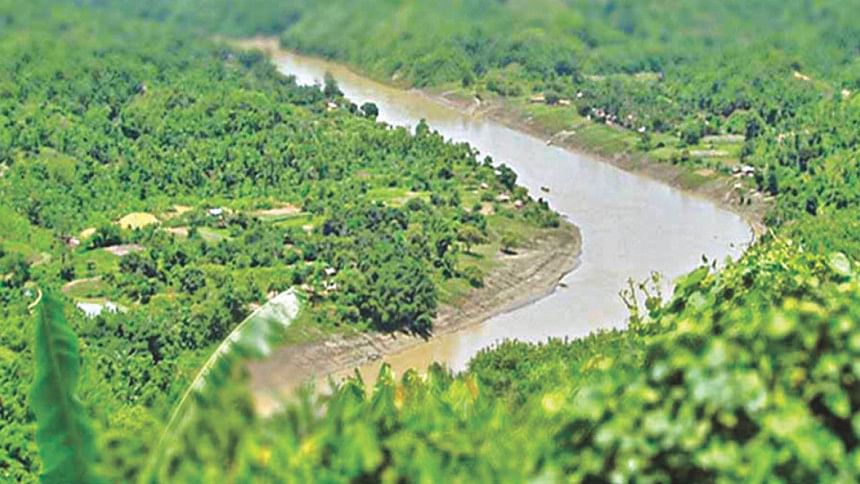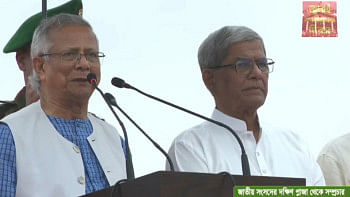Bangladesh Delta Plan 2100: Not the most practical proposal

Bangladesh is considered to be extremely vulnerable to the impacts of climate change. In an attempt to provide safety and security for people living in low-lying coastal regions (15 percent of the country has an elevation below 1 m) against cyclones, tidal surges and flooding, the government has taken various measures over the last few decades, which included building 139 polders. Despite having polders, Bangladesh is facing adverse hydro-meteorological shocks, including inundation of coastal plains due to the high rate of sea-level rise (8 to 23 mm/year) as compared to the global trends (3.4 mm/year), salinity ingress, water-logging, reduction in cropland and crop yield, siltation of riverbeds, and impact on human health.
Despite an increase in natural calamities, the economic growth over the last few decades has been quite satisfactory with a GDP growth rate ranging between 4.8 percent to over 6 percent. The per capita GDP has grown from $631 in 1990 to $1,276 in 2010. In the face of population growth and climate change, it will be challenging to sustain the economic growth and to achieve the sustainable development goals (SDGs) in coming decades.
In this backdrop, it is imperative to formulate a long term strategic plan to protect the delta and its environment. Proper land and water management is central to the country's sustained economic development and protection of its environment. Recently, a large consortium, led by the consultancy firm Twynstra Gudde, has signed a contract for the development of the Delta Plan for Bangladesh 2100 (BDP2100), which is designed to formulate a long-term (50 to 100 years) delta governance. As per the Inception Report for the BDP2100, "the mission is to develop strategies which contribute to disaster risk reduction, water safety, climate change resilience and adaptation, food security, and economic development of the country." This author holds the view that BDP2100 lacks merit on the following grounds:
Ownership:
According to news reports and the official webpage of BDP2100 (http://www.bangladeshdeltaplan2100.org), a total of eight (Twynstra, Mott McDonald, Climate Adaptation Services, Ecorys, Defacto, Deltares, Alterra, and Weeteveen BOS) out of ten consultency firms are from outside Bangladesh. This plan will put the management of land, water, and environment of the country in the hand of foreign agencies. Recently, the Prime Minister of Bangladesh Sheikh Hasina reiterated that Bangladesh has achieved self-sufficiency in all sectors of development and there was no need to rely on foreign consultants for development projects. The inception of the BDP2100 is incongruent with the stated vision for development by the prime minister.
Accountability:
According to the Dutch Water Sector, collaboration between the Netherlands and Bangladesh on various flood prevention measures and coastal zone management has been in place for over 50 years. The success from these projects in terms of flood prevention and coastal zone management has been scanty at most. What guarantee will the NGOs involved in the implementation of BDP2100 provide should the plan drive the delta to a path of failure and further destruction?
Tranperancy:
The BDP2100 is probably by far the largest land and water management project that Bangladesh has ever undertaken. It is expected that such a monumental project will be discussed in the Parliament and in open public forums. Yet, not much is known about the details of the project in the public domain.
Adoption of the failed structural approach:
Building of flood control structures and polders did not prove to be an effective measure over the last six decades. The BDP2100 webpage states that "besides these typical coastal projects, a number of river improvement projects are also of relevance for our baseline, such as the Gorai River Restoration Plan, the Ganges Barrage Plan, Bhairab River Plan and Kobadak River Basin Plan." Without any water sharing agreement with upper riparian countries, there will be no guarantee of river flow needed to make the Gorai River Restoration Plan and the Ganges Barrage Plan a success during the lean season.
Absence of transboundary river issues:
The BDP2100 mentions the adverse impacts of the Farakka Barrage and other upstream diversion structures, including the Indian River Linking Project, but it falls short in addressing the importance of an integrated water resources management plan for the GBM basins, involving all co-riparian countries. BDP2100 does not indicate how, or if, various projects can be successful without having any guarantee of adequate flow in transboundary rivers during lean seasons.
Unidirectional composition of the technical team:
The BDP2100 team consists of 39 people, of which eight belong to various Bangladeshi agencies and 21 belong to foreign consulting firms. Of the 21 consultants, eight are of Bangladeshi origin, but are employed by Euroconsult Mott McDonald. A vast majority of the team members are civil engineers, but the proposed BDP2100 involves dealing with subject matters pertaining to earth systems science, hydrogeology, coastal geomorphology, wetland ecosystems, sustainability science, agriculture, fisheries, and socio-cultural issues.
Open-ended nature of the project:
Almost all the coastal structures are designed to face coastal hazards of a certain magnitude. A rise of sea level by 0.88 meters is likely to topple the existing polders. The proponents suggest a rise of polder height by one metre. However, a study by Gardiner (2014) projected a four metre rise in sea level in the next few decades, which will inundate about 40 percent of the land area in Bangladesh, including the polders, and will displace 50 million people. Under these uncertain predictions, BDP2100 will become obsolete and an open-ended project in the next century.
Beyond coastal zone management:
As per BDP2100, the whole of Bangladesh is divided into seven hotspot-wise intervention programmes. The implementation of this project will put unlimited amount of control of the national development agenda in the hand of consulting firms, which cannot be acceptable for a sovereign nation.
Getting locked in a long-term maintenance contract:
The proposed BDP2100 is designed to last at least another 50 to 100 years. Bangladesh will be locked in a maintenance contract with the consulting firms for the entire duration of the project and beyond. It will be unwise to put our future generations under such an obligation.
Missing the SDGs:
As a signatory of the SDGs, Bangladesh is expected to implement the goals following the targets set by the UN. However, there is no mention of any SDG in the proposed plan.
Which way should we go now?
Bangladesh needs to abandon the structural approach in managing coastal zones, and adopt an ecological or open approach to water resources management. Bangladesh, along with 194 other nations, has embarked on the sustainable development goals that are proposed by the UN for the next 15 years. Bangladesh needs to devote more resources to improve national capability building that will be necessary to implement land and water management projects in the context of SDGs. It is equally important for the country to work on achieving water sharing agreements for all transboundary rivers with all co-riparian nations in the GBM basins before adopting an ambitious plan like BDP2100, which cannot be successful without adequate flow of water and sediments during lean seasons.
The writer is Professor of Geology, Lock Haven University, Lock Haven, PA 17745, [email protected].

 For all latest news, follow The Daily Star's Google News channel.
For all latest news, follow The Daily Star's Google News channel. 







Comments